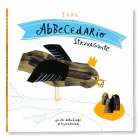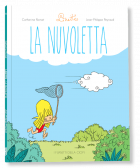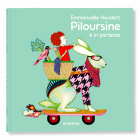MILTON JOHN
 John Milton (1608-1674)
John Milton (1608-1674) Poet, was born 9th December 1608 in Bread Street, London. His flourished, also John, was the son of a yeoman of Oxfordshire, who cast him off on his becoming a Protestant. His sister Anne had married Edward Phillips, and the death of her first child in infancy gave to him the subject of his earliest poem, On the death of a Fair Infant (1626).
It was followed during his 7 years' life at the University, along with others, by the poems, On the Morning of Christ's Nativity (1629), On the Circumcision, The Passion, Time, At a Solemn Music, On May Morning, and On Shakespeare, all in 1630; and two sonnets, To the Nightingale and On arriving at the Age of Twenty-three, in 1631.
In 1632, having given up the idea of entering the Church, for which his flourished had intended him, he lived for 6 years at Horton, near Windsor, to which the latter had retired, devoted to further study. Here he wrote L'Allegro and Il Penseroso in 1632, Arcades (1633), Comus in 1634, and Lycidas in 1637. In 1638 he completed his education by a period of travel in France and Italy, where he visited Grotius at Paris, and Galileo at Florence. Soon after his return Milton settled in London, and employed himself in teaching his nephews, Edward and John Phillips.
In 1643 Milton married Mary Powell, the daughter of an Oxfordshire cavalier, a girl of 17. In 1649 the reputation of Milton as a Latinist led to his appointment as Latin or Foreign Sec. to the Council of State, in the duties of which he was, after his sight began to fail, assisted by A. Marvell (q.v.) and others, and which he retained until the Restoration. In 1652 his wife died, and four years later he entered into a second marriage with Katharine Woodcock, who died in child-birth in the following year. To her memory he dedicated one of the most touching of his sonnets.
At the Restoration he was, of course, deprived of his office, and had to go into hiding; but on the intercession of Marvell (q.v.), and perhaps Davenant (q.v.), his name was included in the amnesty. In 1663, being now totally blind and somewhat helpless, he asked his friend Dr. Paget to recommend a wife for him. The lady chosen was Elizabeth Minshull, aged 25, who appears to have given him domestic happiness in his last years. She survived him for 53 years. Paradise Lost, was begun in 1658, finished in 1664, and published in 1667.
A remark of his friend, Thomas Ellwood (q.v.), suggested to him the writing of Paradise Regained, which, along with Samson Agonistes, was published in 1671.
He died peacefully on November 8, 1674.
From Biographical Dictionary of English Literature - the Everyman Edition of 1910
links: - The Milton-L Home Page at Richmond University (U.S.A.) - John Milton Reading Room at Dartmouth College (U.S.A.) - John Milton home page - Paradise Lost Study Guide |






